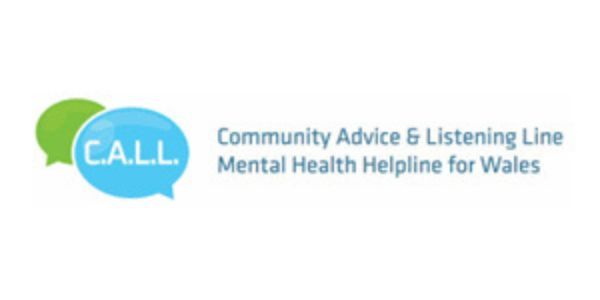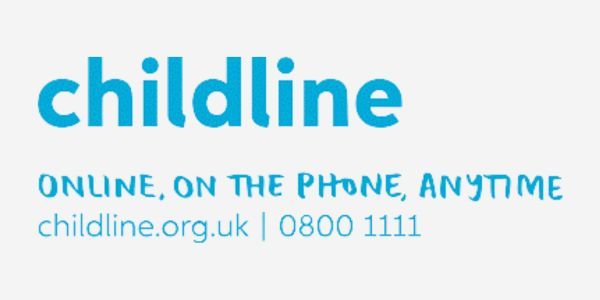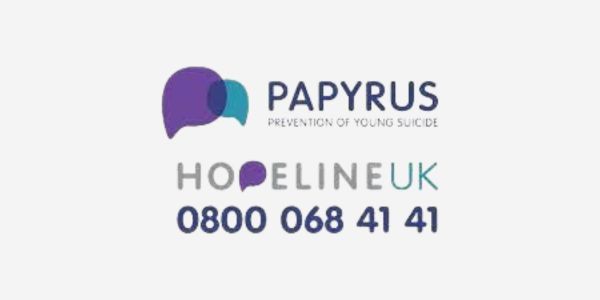Diarrhoea and/or Vomiting
(Gastroenteritis) - Advice for parents and carers of children
If your child has any of the following
- Becomes pale, mottled and feels abnormally cold to touch
- Going blue around the lips or too breathless to talk / eat or drink
- Becomes extremely agitated, confused or very lethargic (difficult to wake)
- Develops a rash that does not disappear with pressure (the ‘Glass Test’)
- Is under 1 month of age with a temperature of 38°C / 100.4°F or above
You need urgent help.
please phone 999 or go to the nearest Hospital Emergency (A&E) Department
If your child has any of the following:
- Seems dehydrated: ie. sunken eyes, drowsy, sunken fontanelle (soft spot on baby’s head) or no urine passed for 12 hours
- Has blood in the stool (poo)
- Has constant tummy pain
- Has completely stopped drinking or breastfeeding
- Is unable to keep down any fluids during this illness
- Is becoming drowsy (excessively sleepy) or irritable (unable to settle them with toys, TV, food or picking up) – especially if they remain drowsy or irritable despite their fever coming down
- Is between 1-3 months of age with a temperature of 38°C / 100°F or above; or 3-6 months of age with a temperature of 39°C / 102.2°F or above (but fever is common in babies up to 2 days after they receive vaccinations).
- If your child has diabetes, monitor their blood sugars closely
You need to contact a doctor or nurse today.
Please ring your GP surgery or contact NHS WAles 111
If none of the above features is present, most children with diarrhoea and / or vomiting can be safely managed at home.
Note that children younger than 1 year may become dehydrated more quickly. If your child appears otherwise well but you still have concerns, please contact your GP surgery or contact NHS Wales 111
Self care
Using the advice below you can provide the care your child needs at home
- Encourage your child to drink plenty of fluids – little and often. Water is not enough and ideally oral rehydration solution (ORS) is best. ORS can be purchased over the counter at large supermarkets and pharmacies and can help prevent dehydration from occurring.
- Mixing the contents of the ORS sachet in dilute squash (not “sugar-free” squash) instead of water may improve the taste.
- Continue to offer your child their usual feeds, including breast and other milk feeds.
- Do not worry if your child is not interested in solid food. If they are hungry, offer them plain food such as biscuits, bread, pasta or rice. It is advisable not to give them fizzy drinks as this can make diarrhoea worse.
- Your child may have stomach cramps; if simple painkillers such as paracetamol and ibuprofen do not help please seek further advice.
- Most children with diarrhoea and / or vomiting get better very quickly, but some children can get worse. You need to regularly check your child and follow the advice given to you by your healthcare professional and / or as listed on this sheet
- Tummy bugs are extremely common in young children and are almost always caused by a virus.
- They are easily spread, resulting in outbreaks in nurseries and schools.
- Diarrhoea can often last between 5 – 7 days and stops within 2 weeks. Vomiting usually stops within 3 days. If your child continues to be ill for longer than these periods, seek advice.
- Severe diarrhoea and / or vomiting can lead to dehydration, which is when the body does not have enough water or the right balance of salts to carry out its normal functions. If the dehydration becomes severe it can be dangerous.
- Children at increased risk of dehydration include:
- young babies under 1 year old (and especially the under 6 months)
- babies born at a low birth weight and those who have stopped drinking or breastfeeding during the illness
- children with faltering growth
Once your child is rehydrated and no longer vomiting:
- continue breastfeeding, other milk feeds and fluid intake - give full strength milk straight away.
- reintroduce the child’s usual food.
- avoid giving fizzy drinks until the diarrhoea has stopped
- if dehydration recurs, start giving ORS again
- anti-diarrhoeal medicines (also called antimotility drugs) should not be given to children
- your child cannot return to nursery / school until 48 hours after the last episode of diarrhoea and / or vomiting
Preventing the spread of Gastroenteritis (diarrhoea and / or vomiting):
You and/or your child should wash your hands with soap (liquid if possible) in warm running water and then dry them carefully:
- After going to the toilet
- After changing nappies
- Before touching food
Your child should not:
- Share his or her towels with anyone
- Go to school or any other childcare facility until 48 hours after the last episode of diarrhoea and / or vomiting
- Swim in swimming pools until 2 weeks after the diarrhoea has stopped
This guidance is written by healthcare professionals from across Hampshire, Dorset and the Isle of Wight.
NHS 111 Wales
Website: NHS 111 Wales
NHS 111 Wales (Option 2) telephone service is available 24/7 and can be used for urgent mental health advice and support.
Meic
Website: www.meiccymru.org
Meic is the helpline service for children and young people up to the age of 25 in Wales. Chat online, freephone 080880 23456, or text 84001.
C.A.L.L. Community Advice Listening Line
Website: www.callhelpline.org.uk
Provides a confidential mental health listening and emotional support line which is open 24/7. Call 0800 132 737 or text ‘help’ to 81066.
Shout
Website: www.giveusashout.org
Text ‘shout’ to 85258 anytime, day or night.
Childline
Website: www.childline.org.uk
If you’re under 19 you can confidentially call, chat online or email about any problem big or small.
Samaritans
Website: www.samaritans.org/wales/samaritans-cymru/
Call 116 123 free, anytime, day or night.
Papyrus
Website: www.papyrus-uk.org
Are you, or is a young person you know, not coping with life? For confidential suicide prevention advice contact HOPELINEUK. We are open 9am–midnight every day.
Campaign Against Living Miserably (CALM) for men
Website: www.thecalmzone.net
Need help? Call our helpline 5pm-midnight, 365 days a year on 0800 58 58 58.
DAN 24/7 - Wales Drug and Alcohol Helpline
Website: www.dan247.org.uk/
Freephone 0808 808 2234, or text DAN to 81066.
NHS 111 Wales
Website: NHS 111 Wales
NHS 111 Wales (Option 2) telephone service is available 24/7 and can be used for urgent mental health advice and support.
Meic
Website: www.meiccymru.org
Meic is the helpline service for children and young people up to the age of 25 in Wales. Chat online, freephone 080880 23456, or text 84001.
C.A.L.L. Community Advice Listening Line
Website: www.callhelpline.org.uk
Provides a confidential mental health listening and emotional support line which is open 24/7. Call 0800 132 737 or text ‘help’ to 81066.
Shout
Website: www.giveusashout.org
Text ‘shout’ to 85258 anytime, day or night.
Childline
Website: www.childline.org.uk
If you’re under 19 you can confidentially call, chat online or email about any problem big or small.
Samaritans
Website: www.samaritans.org/wales/samaritans-cymru/
Call 116 123 free, anytime, day or night.
Papyrus
Website: www.papyrus-uk.org
Are you, or is a young person you know, not coping with life? For confidential suicide prevention advice contact HOPELINEUK. We are open 9am–midnight every day.
Campaign Against Living Miserably (CALM) for men
Website: www.thecalmzone.net
Need help? Call our helpline 5pm-midnight, 365 days a year on 0800 58 58 58.
DAN 24/7 - Wales Drug and Alcohol Helpline
Website: www.dan247.org.uk/
Freephone 0808 808 2234, or text DAN to 81066.
- Try to stay calm.
- Tell them you are there for them and that you are not upset or angry.
- Tell them you are pleased they have told you they are having thoughts of harming themselves and that you are able to help them through this time.
- Listen to what they are saying even if they are venting anger or other negative emotions at you.
- Listen without interrupting.
- Validate their thoughts and feelings – they are real and important.
- Try to be emotionally available and present for your child.
- Once things appear to be settling please encourage your child to relax as the day/ evening progresses and make some suggestions for things you can do together to distract them from their thoughts (see below for some ideas).
- Try to proactively manage any potential conflicts or arguments within your immediate environment.
- Be mindful of excessive use of mobile devices but that young people really need to feel connected to others at times of distress.
If you are concerned that your child/ young person is at risk of harming themselves, please ensure the following:
- All medications (prescribed/ over the counter/ vitamins) are removed and/ or locked in a strong lockable medical box or locked cupboard. Medication needs to be stored in this way in all houses where the young person stays, including grandparents, foster carers, step parents and residential homes.
- All sharp objects, such as knives and razor blades, to be removed and/ or stored securely.
- Ensure the young person has not got a stock of medication or sharp objects in their room or amongst their property.
- Other environmental risks in your home should be considered, e.g. removing ropes, ties, dressing gown ties.
- Do not allow your child/ young person to go out alone or with friends during times of distress and when they are voicing thoughts of self-harm or suicide.
- Monitor your child/ young person’s mood and behaviour closely.
- Increase your presence and supervision of your child at home, if needed remaining awake or checking on them during the night.
- Ask them about thoughts of self-harm and suicide.
- Look out for any warning signs in your child/ young person that they might be struggling.
- Distract yourself - watch a film or TV programme, play a computer game that absorbs your mind, or read a book you’re really interested in
- Get creative – drawing, mindful colouring, taking photos, listening to music, singing
- Get moving – walk, run, dance, do an exercise or yoga video
- Comfort yourself – have bubble bath or shower, eat something you like, stroke a pet, cuddle up tightly in a blanket, rock/ hug yourself, spray a favourite perfume
Alternatives to self-harm when the urge to harm is very strong:
- Hold ice in your hand for as long as you can
- Step under a cold shower briefly
- Run your hands under cold water
- Snap an elastic band against your wrist
- Hit a cushion against the wall or bed
- Punch a punch bag or pillow
- Go for a fast paced walk or run up and down the stairs several times
- Tear or scrunch up paper













